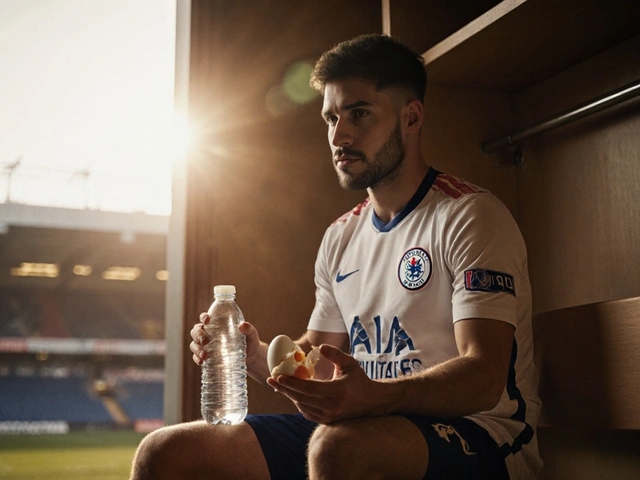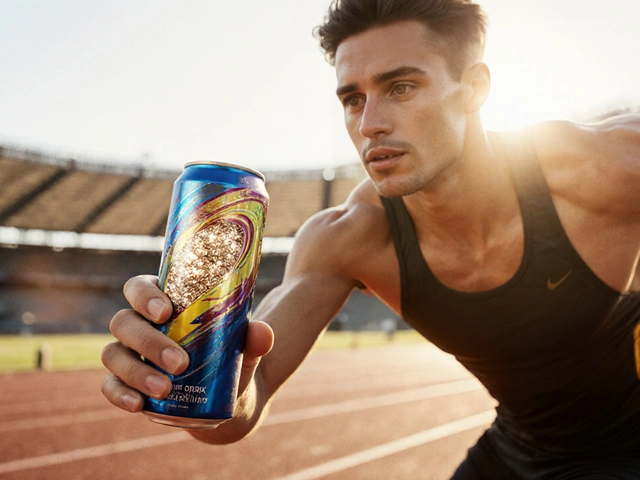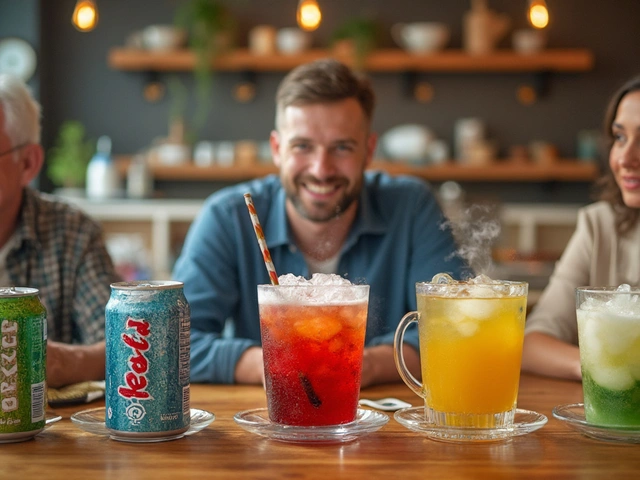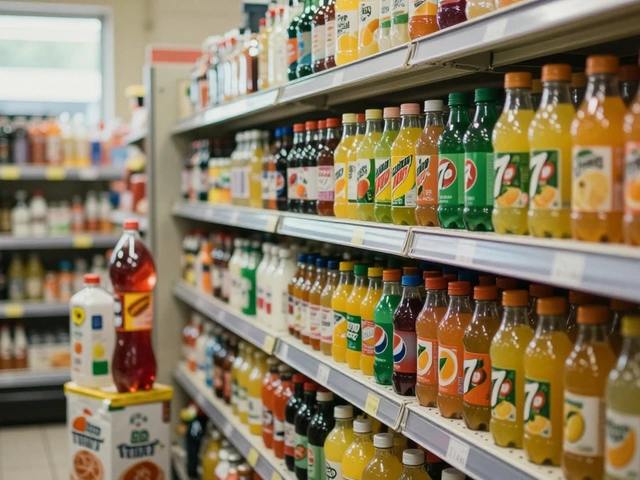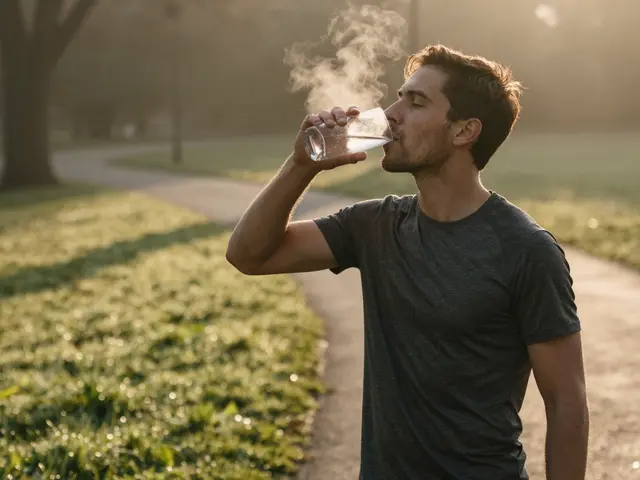What Drink Gives You the Most Energy? Fast vs Lasting Boosts, Caffeine Dosage & Smarter Choices
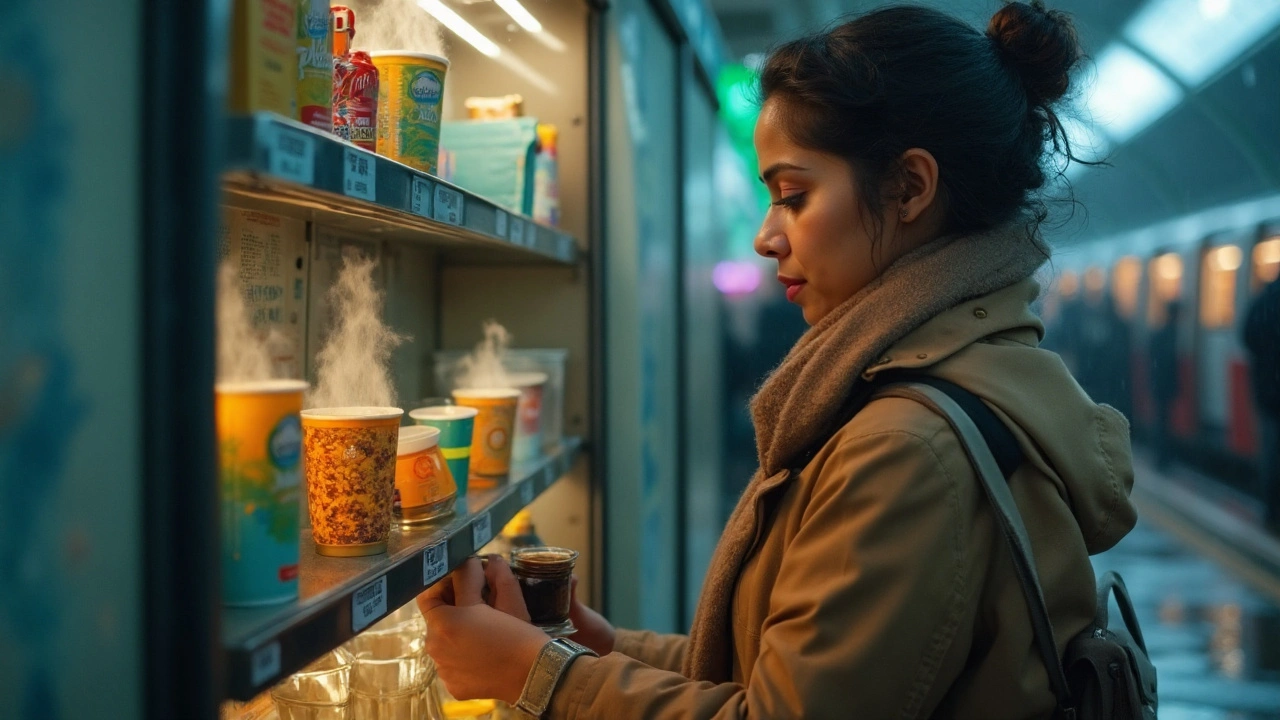
You clicked this because you want a straight answer: what drink actually gives the strongest energy boost-and how do you avoid the crash. Short answer: a high-caffeine shot with sugar hits hardest, fastest. But if you want clean, steady energy and decent sleep tonight, you’ll pick differently. The right choice depends on how fast you need it, how long you want it to last, your caffeine tolerance, and the time of day. I’m a Brisbane mum who writes at 5 a.m., trains in the humidity, and lives through school runs, deadlines, and Queensland heat-so I care about what works in the real world.
TL;DR / Key takeaways
- Fastest jolt: energy shot (150-200 mg caffeine) with 15-25 g sugar. It peaks in ~30-45 minutes and often crashes.
- Best steady focus: black coffee or cold brew (100-200 mg) or matcha (60-80 mg) taken with food. Slower rise, smoother landing.
- Best for workouts: 3-6 mg/kg caffeine 30-60 min pre-exercise (per ACSM/ISSN). Most people do well with 1-3 mg/kg. Don’t exceed 400 mg/day.
- Low energy from dehydration? Water plus electrolytes beats caffeine. Even 1% fluid loss can sap alertness.
- Keep it safe: FSANZ/NHMRC suggest avoiding energy drinks for kids; pregnancy/breastfeeding cap caffeine at ~200 mg/day; healthy adults up to ~400 mg/day.
How to choose the right drink for the energy you want (step-by-step)
- Define the job.
- Need an immediate spark for a short task? Go for a small, strong dose that absorbs fast: an energy shot or a double espresso.
- Need steady focus for 2-4 hours? Choose moderate caffeine with a slower curve: black coffee, cold brew, or matcha with food.
- Training or racing? Time caffeine 30-60 minutes before, based on what your gut tolerates.
- Afternoon slump? Moderate caffeine plus protein/fiber. Skip sugar bombs-they’ll boomerang.
- Feeling flat on a hot day? Test hydration first: water + electrolytes may fix it faster than caffeine.
- Set your caffeine budget.
- Healthy adults: up to ~400 mg/day total (widely cited by FSANZ, NHMRC, FDA).
- Pregnancy/breastfeeding: ~200 mg/day max (NHMRC, WHO, ACOG).
- Teens/kids: avoid energy drinks; limit caffeine (FSANZ/NHMRC).
- Anxiety, heart rhythm issues, reflux? Keep doses small or avoid; chat with your GP if unsure.
- Match the drink to your goal.
- Fastest lift: energy shot (150-200 mg), double espresso (~120 mg), or strong cold brew (150-250 mg). Add 10-20 g sugar only if you need a sprint, not a marathon.
- Longest steady focus: cold brew or filtered coffee 100-160 mg; matcha 60-80 mg (L-theanine helps with calm focus); yerba mate 80-120 mg if you like herbal.
- Workout: choose 1-3 mg/kg (e.g., 70 kg person: 70-210 mg) 30-60 min pre. Athletes sometimes use 3-6 mg/kg, but side effects rise fast.
- Hydration-first days: 500-750 ml water with electrolytes (sodium 300-600 mg/L) before reaching for caffeine.
- Caffeine-sensitive: half-caf, black tea (~40-60 mg), or matcha micro-doses (¼-½ tsp).
- Dose and timing rules of thumb.
- Peak alertness: most caffeine peaks 30-60 minutes after drinking.
- Half-life: ~5-7 hours, so a 2 p.m. 200 mg dose still leaves ~100 mg at 9 p.m. Sleep matters.
- Cutoff: stop caffeine 8-10 hours before bedtime if you’re a light sleeper.
- If you’re doing two doses: split smaller amounts (e.g., 100 mg morning, 50-100 mg late morning) rather than one huge hit.
- Upgrade the drink so it works harder for you.
- Eat with it: protein + fiber (eggs on toast, yogurt with oats) smooths absorption and reduces crashes.
- Go sugar-aware: 25-30 g sugar can supercharge a sprint but often leads to a slump 1-2 hours later.
- Add milk or a splash of oat milk if you get coffee tummy; the fat/protein buffer helps.
- Salt matters on hot days. Pair coffee with electrolytes if you’ve been sweating.
- Avoid the potholes.
- Don’t stack energy drinks back-to-back-hidden caffeine (guarana) counts too.
- Never mix caffeine with alcohol. It masks intoxication without improving coordination.
- Beware mega-dosed pre-workouts (300+ mg) if you’re new; start at half-scoop.
- Watch labels: a 500 ml energy can often equals 2 servings.
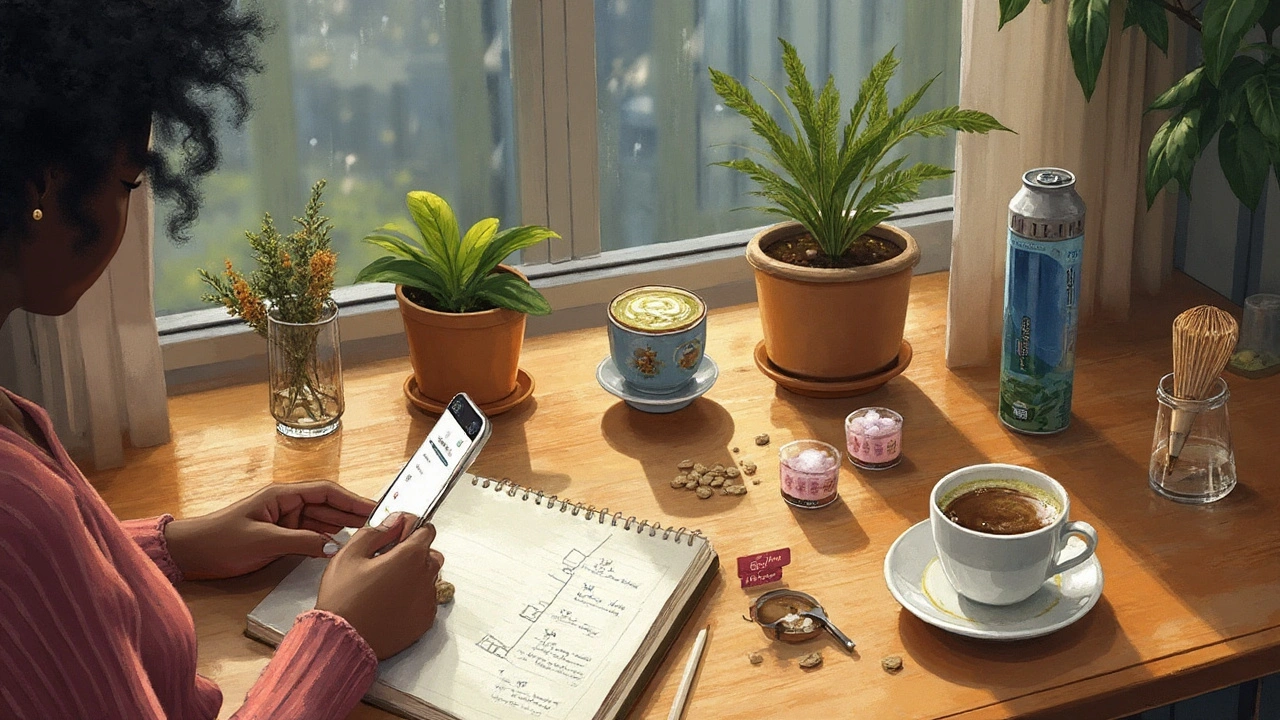
Real-world examples (fast vs lasting vs crash-free)
Morning in Brisbane, still dark, kookaburras going off, humidity already bossy. I write before my kids wake up, so I want focus without jitters. My go-to: 250 ml cold brew (~150 mg) with a small breakfast-Greek yogurt and fruit. It climbs gently and keeps me steady until school drop-off. If I have to push through edits for two hours straight, I’ll add a ½ matcha later (~35 mg) instead of another coffee. Works like a dimmer switch, not a strobe light.
School run done, heat hits. If I feel foggy, I check hydration before caffeine. One 600 ml bottle of water with electrolytes usually wakes my brain faster than coffee here in Queensland. A 1% drop in body water can dent attention and mood; you feel “tired” when you’re just dry.
Workout days: 45 minutes before lifting, I take 1-2 mg/kg caffeine. For me, that’s ~100-150 mg: a double shot long black or a small no-sugar energy drink. If I’m doing intervals outside, I pair that with electrolytes; the combo feels like switching my body from economy to sport mode without a post-session crash.
Need a blunt-force jolt, say, for a 20-minute emergency task? An energy shot with 150-200 mg caffeine plus 10-20 g sugar works. It’s a red button. I use it rarely-usually when a deadline collides with kid logistics or Whiskers knocks a glass of water on my notes.
Long drive to the Sunshine Coast? I pack two small doses spaced apart: first, a coffee (~120 mg); two hours later, a black tea (~50 mg). I snack on nuts and a banana. Zero crash, clear head, and I sleep fine that night.
Study sessions (or deep work): matcha or coffee with breakfast. If you’re prone to anxiety, start with matcha-L-theanine can soften the edges so you get alert without the heart flutters. For Zane and Fern-who are not on caffeine-hydration and a solid snack are the real MVPs of homework hour.
Cheat sheets: caffeine, sugar, timing, and best-use cases
Typical values vary by brand and brew strength. Always check your label or café’s posted info.
| Drink (typical serve) | Caffeine (mg) | Sugar (g) | Time to Peak | Best For | Avoid If |
|---|---|---|---|---|---|
| Energy shot (60-75 ml) | 150-200 | 0-25 | 30-45 min | Immediate jolt, short tasks | Anxiety, heart palpitations, late afternoon |
| Energy drink (250 ml can) | 80-160 | 0-27 | 30-60 min | Pre-workout, quick boost | Sleep issues, sugar-sensitive |
| Energy drink (500 ml can) | 160-320 | 0-54 | 30-60 min | Long tasks if split in halves | Over-caffeination, sugar crash risk |
| Espresso (single, 30 ml) | 60-70 | 0 | 20-40 min | Quick, small-volume boost | Acid reflux, empty stomach |
| Long black / Americano (250 ml) | 80-120 | 0 | 30-45 min | Steady focus, lower sugar | Late-day intake |
| Cold brew (250 ml) | 150-250 | 0 | 30-60 min | Long, smooth focus | Sensitive to caffeine |
| Matcha (½-1 tsp in 250 ml) | 35-80 | 0-5 (unsweetened) | 30-60 min | Calm focus, anxiety-prone | Green tea sensitive |
| Black tea (250 ml) | 40-60 | 0-5 | 30-60 min | Gentle lift | Very high tolerance |
| Yerba mate (250 ml) | 80-120 | 0-5 | 30-60 min | Herbal steady energy | Stomach sensitivity |
| Pre-workout (1 scoop) | 150-300 | 0-5 | 30-60 min | Performance, training | New to caffeine, late sessions |
| Electrolyte drink (500 ml) | 0 | 0-6 (no/low sugar) | Immediate hydration | Heat, dehydration | N/A |
what drink gives you the most energy? On pure punch-per-minute, it’s the energy shot or a strong cold brew. But “best” depends on whether you want speed, staying power, or a clean landing.
Quick rules you can use anytime
- If you need energy in under 15 minutes: double espresso. Tiny volume, fast absorption.
- If you need 2-4 hours of focus: 100-160 mg caffeine with breakfast.
- If you’re hot or have a slight headache: 500-750 ml water + electrolytes before any caffeine.
- If sleep matters tonight: stop caffeine 8-10 hours before bed.
- If you crash easily: avoid 25+ g sugar unless you’re mid-workout.
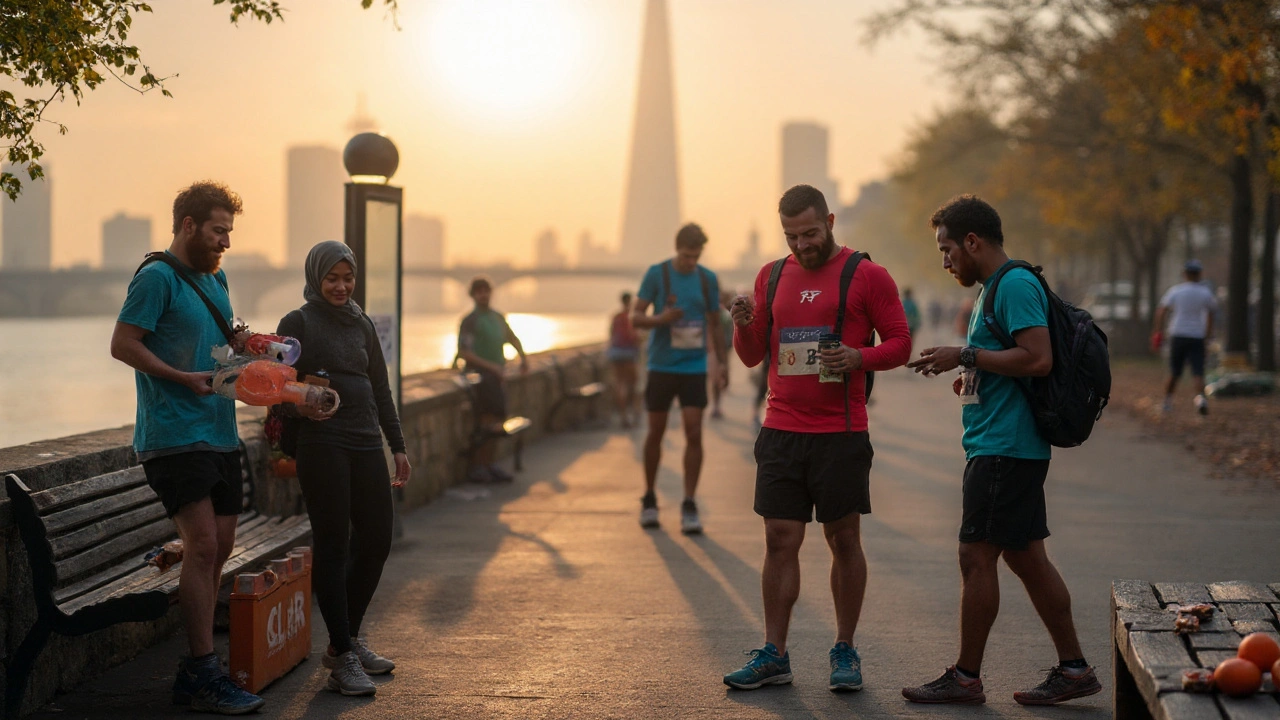
Mini‑FAQ and Next steps
What gives the biggest immediate energy boost? An energy shot with 150-200 mg caffeine plus 10-20 g sugar hits hardest. It’s handy for short, urgent tasks. Expect a peak around 30-45 minutes, and a possible slump 1-2 hours later.
What lasts the longest without a crash? Cold brew or filtered coffee (100-160 mg) with a protein-rich snack, or matcha (60-80 mg) if you’re jitter-prone. The food slows absorption; matcha’s L‑theanine nudges calm focus.
Is matcha really smoother than coffee? Many people feel fewer jitters. That’s consistent with L‑theanine’s calming effect. If coffee makes you edgy, try ½ tsp matcha first and see.
Do taurine and B‑vitamins add energy? Caffeine drives the alertness. Taurine may support performance in some contexts, but the acute “energy” feeling comes mainly from caffeine and sugar. B‑vitamins help energy metabolism if you’re deficient; they don’t act like stimulants.
How much caffeine is safe? Healthy adults: up to ~400 mg/day. Pregnancy/breastfeeding: ~200 mg/day. Kids/teens: avoid energy drinks. Sources: FSANZ, NHMRC, and international guidelines.
Can I mix coffee and energy drinks? You can, but total caffeine still counts. Track the day’s total and your timing. If you’ve had a 200 mg shot at 2 p.m., another 200 mg at 5 p.m. will still be half-active at bedtime.
Why does water sometimes give me more “energy” than coffee? Mild dehydration tanks attention and mood. In Brisbane’s heat, I often feel sharper after water + electrolytes than any espresso-then I decide if I still want caffeine.
What about pre‑workout formulas? They often contain 150-300 mg caffeine plus beta‑alanine and other ingredients. If you’re new, start with half a scoop to gauge your response. Avoid late-day use.
Is sugar ever helpful? Yes, during or just before hard exercise. A small amount of sugar with caffeine can improve performance and perceived energy. For desk work, sugar tends to backfire.
How do I stop caffeine from wrecking my sleep? Earlier doses, smaller amounts, and a hard cutoff 8-10 hours before bed. If you’re still wired, drop your total mg and try matcha or black tea.
Who should be extra careful? People with anxiety disorders, heart rhythm issues, uncontrolled blood pressure, reflux, or pregnancy/breastfeeding. Keep doses low and check with your doctor.
Next steps / Troubleshooting by persona
- Busy parent on little sleep: 100-120 mg with breakfast; hydrate; optional 40-60 mg (tea) mid-morning. No caffeine after 1 p.m.
- Student or deep-work day: 100-160 mg at start with protein + fiber; optional 40-80 mg two hours later. Avoid high-sugar drinks unless you’re exercising.
- Endurance athlete (hot weather): 1-3 mg/kg caffeine 45 minutes pre; 300-600 mg sodium per liter fluids. Use gels or sports drink if sessions exceed 60-90 minutes.
- Caffeine‑sensitive: Start with 20-40 mg (¼-½ tsp matcha, weak black tea). Pair with food. Consider a decaf placebo if your habit is the trigger.
- Night shift: 100-120 mg at shift start; 40-80 mg at mid-shift; none in the last 6-8 hours before your target sleep time. Blue-light control helps more than extra caffeine.
Troubleshooting
- Jitters/palpitations: halve your dose; switch to matcha/tea; don’t drink on an empty stomach; add electrolytes if you’re sweaty.
- Crash 1-2 hours later: reduce sugar; eat protein + fiber; split caffeine into smaller, spaced doses.
- No effect anymore: you’ve built tolerance. Take a 3-7 day deload or cut to 50-100 mg/day, then reintroduce.
- Headache: hydrate, eat, and avoid big caffeine swings. If persistent, seek medical advice.
- Stomach upset: try milk in coffee, switch to cold brew or tea, and avoid acidic coffee on an empty stomach.
Evidence notes: The American College of Sports Medicine and the International Society of Sports Nutrition report caffeine at 3-6 mg/kg enhances endurance, power, and alertness; most everyday users feel good effects at 1-3 mg/kg with fewer side effects. Food Standards Australia New Zealand and Australia’s NHMRC echo common-sense limits: healthy adults up to ~400 mg/day, pregnancy ~200 mg/day, and caution for youth. That’s the backbone of the rules above.
So, which drink “gives you the most energy”? If you mean raw punch: an energy shot or strong cold brew. If you mean “keeps me sharp without wrecking my sleep”: coffee, cold brew, or matcha, timed smartly and paired with food. On a hot Brisbane day, start with water and electrolytes-you might be surprised how far that gets you. Then pick the smallest caffeine dose that does the job, and save the red button for when you truly need it.

